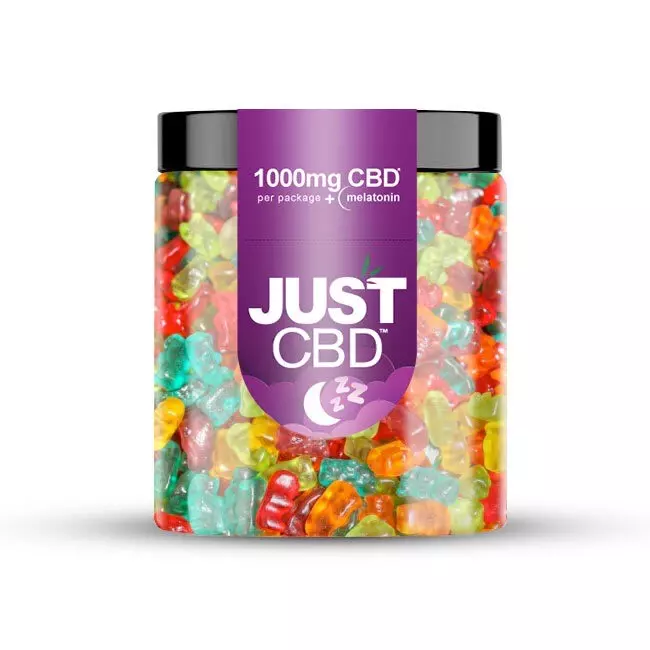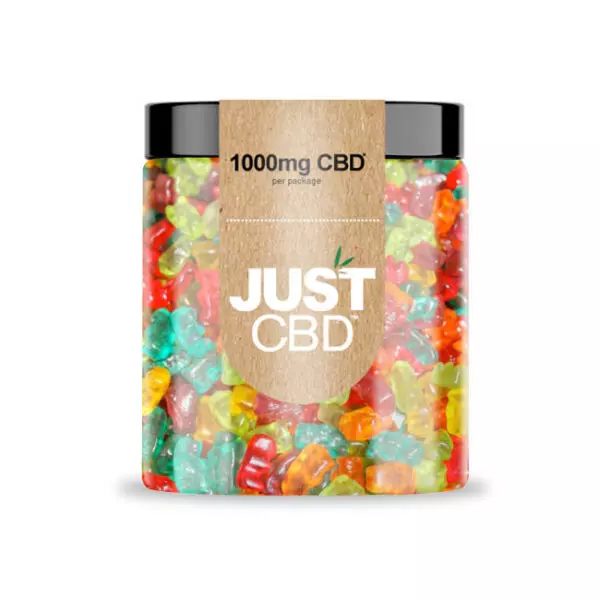How CBD Works on the Body
Cannabidiol, commonly known as CBD, is a natural compound found in the cannabis plant. Unlike its counterpart THC, CBD does not produce psychoactive effects. Instead, it interacts with the body’s endocannabinoid system (ECS), a complex network of receptors that play a crucial role in regulating various physiological processes, including mood, sleep, and pain perception. By influencing the ECS, CBD can potentially influence stress responses and cognitive function.
The Endocannabinoid System
The endocannabinoid system (ECS) is a sophisticated network of receptors and neurotransmitters found throughout the body. It plays a vital role in maintaining homeostasis, or balance, by regulating various functions like mood, sleep, appetite, and pain perception. The ECS consists of two primary types of receptors: CB1 and CB2. CB1 receptors are primarily located in the brain and central nervous system, while CB2 receptors are more prevalent in the immune system and peripheral tissues.
CBD interacts with the ECS by binding to these receptors, though it doesn’t directly activate them like THC does. Instead, CBD is thought to modulate the activity of the ECS, influencing the production and release of endocannabinoids, the body’s naturally occurring cannabinoids. This interaction can potentially have a calming effect on the nervous system, reducing feelings of stress and anxiety. Additionally, by impacting neurotransmitter systems in the brain, CBD may also influence cognitive function, including focus and attention.
CBD’s Interaction with Receptors
CBD exerts its effects primarily by interacting with the body’s endocannabinoid system (ECS). This intricate network of receptors and neurotransmitters plays a crucial role in regulating various bodily functions, including mood, sleep, appetite, and pain perception. The ECS comprises two main types of receptors: CB1 and CB2.
CB1 receptors are predominantly found in the brain and central nervous system, while CB2 receptors are more abundant in the immune system and peripheral tissues. CBD interacts with these receptors differently than THC, the psychoactive component of cannabis. While THC directly activates CB1 receptors, CBD’s interaction is more nuanced.
CBD is believed to modulate the activity of the ECS by influencing the production, release, and breakdown of endocannabinoids, which are naturally occurring cannabinoids produced by the body. This modulation can have a calming effect on the nervous system, potentially alleviating stress and anxiety. Furthermore, CBD’s influence on neurotransmitter systems in the brain may contribute to improved cognitive function, including enhanced focus and attention.
Potential Benefits of CBD for Stress Reduction
Cannabidiol (CBD), derived from the cannabis plant, has emerged as a potential natural remedy for stress reduction. Unlike its counterpart THC, CBD does not produce psychoactive effects but interacts with the body’s endocannabinoid system (ECS). This complex network of receptors plays a crucial role in regulating mood, sleep, and pain perception. By influencing the ECS, CBD may help to modulate stress responses and promote a sense of calm.
Impact on Anxiety Levels
Research suggests that CBD may have anxiety-reducing effects. It is believed to interact with serotonin receptors in the brain, which play a key role in regulating mood and emotions. By modulating serotonin activity, CBD may help to alleviate symptoms of anxiety, such as excessive worry, restlessness, and fear.
Studies have shown that CBD can lower cortisol levels, a hormone released during stressful situations. Reduced cortisol levels can contribute to a feeling of relaxation and calmness. Furthermore, CBD’s potential to improve sleep quality can indirectly reduce stress by allowing the body and mind to rest and recover properly.
While more research is needed to fully understand the mechanisms behind CBD’s effects on anxiety, preliminary findings are promising.
Influence on Cortisol Production
CBD may offer several potential benefits for stress reduction by influencing cortisol production. Cortisol is a hormone released in response to stress, and chronically elevated levels can have detrimental effects on physical and mental health. Studies suggest that CBD can help lower cortisol levels, contributing to a sense of calm and reducing the negative impacts of prolonged stress.
CBD’s interaction with the endocannabinoid system (ECS) is thought to play a role in its ability to regulate cortisol. The ECS is involved in maintaining homeostasis within the body, including the management of stress responses. By modulating the activity of this system, CBD may influence the production and release of cortisol, leading to a reduction in stress hormone levels.
CBD and Improved Focus
CBD oil has become increasingly popular as a natural remedy for various ailments, including stress and focus issues. Cannabidiol (CBD), a non-psychoactive compound found in the cannabis plant, interacts with the body’s endocannabinoid system (ECS). This complex network of receptors helps regulate mood, sleep, pain perception, and other crucial functions. By modulating the ECS, CBD may exert calming effects on the nervous system, potentially reducing stress and improving cognitive function.
Neurotransmitter Modulation
CBD’s potential to enhance focus stems from its influence on neurotransmitter systems in the brain. Neurotransmitters are chemical messengers that facilitate communication between nerve cells, playing a vital role in cognitive processes such as attention, memory, and concentration. CBD is believed to interact with neurotransmitters like serotonin, dopamine, and adenosine, which are involved in regulating alertness, motivation, and cognitive performance.
For instance, CBD may influence serotonin levels, which have been linked to mood regulation and focus. By modulating serotonin activity, CBD could potentially improve attention span and reduce distractibility. Similarly, CBD’s interaction with dopamine receptors might enhance motivation and cognitive drive, leading to improved focus.
Furthermore, CBD’s impact on adenosine receptors could contribute to enhanced alertness and wakefulness. Adenosine is a neurotransmitter that promotes sleepiness; by blocking adenosine receptors, CBD may reduce feelings of fatigue and promote mental clarity, thereby potentially improving focus.
Cognitive Enhancement Effects
CBD interacts with the endocannabinoid system (ECS), a complex network of receptors found throughout the body. The ECS plays a crucial role in regulating various physiological processes, including mood, sleep, pain perception, and cognitive function. By modulating the activity of the ECS, CBD may exert its potential benefits on focus and cognition.
One proposed mechanism through which CBD might enhance focus is by influencing neurotransmitter systems in the brain. Neurotransmitters are chemical messengers that facilitate communication between nerve cells, playing a vital role in cognitive processes like attention, memory, and concentration. CBD is thought to interact with neurotransmitters such as serotonin, dopamine, and adenosine.
For example, CBD may influence serotonin levels, which are linked to mood regulation and focus. By modulating serotonin activity, CBD could potentially improve attention span and reduce distractibility. Additionally, CBD’s interaction with dopamine receptors might enhance motivation and cognitive drive, leading to improved focus.
Furthermore, CBD’s impact on adenosine receptors could contribute to enhanced alertness and wakefulness. Adenosine is a neurotransmitter that promotes sleepiness; by blocking adenosine receptors, CBD may reduce feelings of fatigue and promote mental clarity, potentially improving focus.
Scientific Evidence and Research Findings
Scientific evidence provides valuable insights into the potential benefits of CBD for stress reduction and improved focus.
Studies on CBD and Stress Relief
Numerous studies have investigated the effects of CBD on stress and anxiety. Research suggests that CBD may interact with serotonin receptors in the brain, which play a key role in regulating mood and emotions. This interaction could help alleviate symptoms of stress and anxiety.
Studies have also shown that CBD can lower cortisol levels, a hormone released during stressful situations. Reduced cortisol levels contribute to feelings of relaxation and calmness. Furthermore, CBD’s potential to improve sleep quality indirectly reduces stress by allowing the body and mind to rest and recover properly.
While more research is needed, preliminary findings indicate that CBD holds promise as a natural approach to managing stress and improving focus.
Research on CBD’s Effect on Focus
Scientific research has explored the potential benefits of CBD for both stress reduction and cognitive enhancement. Studies suggest that CBD may interact with serotonin receptors in the brain, which are involved in mood regulation. By modulating serotonin activity, CBD could potentially alleviate symptoms of anxiety and promote a sense of calm.

Furthermore, research indicates that CBD can lower cortisol levels, a key hormone associated with stress responses. Reduced cortisol levels contribute to feelings of relaxation and may help mitigate the negative impacts of chronic stress. Additionally, studies have shown that CBD may improve sleep quality, which indirectly benefits stress reduction by allowing for proper rest and recovery.
Regarding focus, research suggests that CBD’s influence on neurotransmitter systems in the brain, such as serotonin, dopamine, and adenosine, may contribute to improved cognitive function. CBD’s interaction with these neurotransmitters could enhance attention span, reduce distractibility, boost motivation, and promote alertness, ultimately leading to enhanced focus.
Factors to Consider When Using CBD Gummies for Stress and Focus

When considering the use of CBD gummies for stress and focus, several factors should be taken into account.
Dosage and Timing
Understanding your individual needs and tolerance is crucial. Start with a low dosage and gradually increase it as needed. Pay attention to how your body responds to each dose.
The quality of CBD gummies can vary widely. Look for products from reputable brands that provide third-party lab testing results to ensure purity, potency, and safety.
Consider the type of CBD used in the gummies. Broad-spectrum CBD contains a range of cannabinoids and terpenes, while full-spectrum CBD includes trace amounts of THC. Isolates contain only pure CBD.
The ideal dosage of CBD gummies for stress and focus can vary depending on factors such as body weight, metabolism, and individual sensitivity.
Start with a low dose, typically around 5-10mg of CBD, and observe the effects. Gradually increase the dosage as needed, up to a maximum of 25-50mg per day.
Timing is also important. For stress relief, taking CBD gummies earlier in the day may be more beneficial. For focus enhancement, consider taking them before engaging in tasks that require concentration.
Quality and Purity of Gummies
When considering the use of CBD gummies for stress and focus, several factors should be taken into account:
- Quality and Purity of Gummies
- Dosage
- Individual Needs and Tolerance
- Type of CBD
The quality of CBD gummies can vary widely. Look for products from reputable brands that provide third-party lab testing results to ensure purity, potency, and safety.
Understanding your individual needs and tolerance is crucial. Start with a low dosage and gradually increase it as needed. Pay attention to how your body responds to each dose.
Consider the type of CBD used in the gummies. Broad-spectrum CBD contains a range of cannabinoids and terpenes, while full-spectrum CBD includes trace amounts of THC. Isolates contain only pure CBD.

The ideal dosage of CBD gummies for stress and focus can vary depending on factors such as body weight, metabolism, and individual sensitivity.
Start with a low dose, typically around 5-10mg of CBD, and observe the effects. Gradually increase the dosage as needed, up to a maximum of 25-50mg per day.
Timing is also important. For stress relief, taking CBD gummies earlier in the day may be more beneficial. For focus enhancement, consider taking them before engaging in tasks that require concentration.
Individual Responses to CBD
When considering CBD gummies for stress and focus, individual responses to CBD can vary widely. Factors influencing this variability include body weight, metabolism, genetics, and the severity of the condition being addressed. Some individuals may experience noticeable benefits at lower doses, while others might require higher doses to achieve desired effects.
It’s essential to start with a low dosage and gradually increase it as needed, paying close attention to how your body responds. Factors such as age, overall health, and any medications you’re taking can also influence CBD’s effects. Consulting with a healthcare professional is recommended before using CBD gummies, especially if you have pre-existing medical conditions or are taking other medications.
Potential Side Effects and Risks
Like any substance, CBD can have potential side effects and risks. While generally well-tolerated, some individuals may experience mild adverse effects such as dry mouth, fatigue, diarrhea, changes in appetite, or drowsiness. It’s important to be aware of these possibilities and consult with a healthcare professional if you have concerns or experience any unusual symptoms.
Gastrointestinal Issues
Potential side effects of CBD gummies can include:
- Dry mouth
- Fatigue
- Diarrhea
- Changes in appetite
- Drowsiness
Drug Interactions
While generally well-tolerated, CBD can interact with certain medications. It’s crucial to consult with a healthcare professional about potential drug interactions before using CBD gummies, especially if you are taking:
* **Blood thinners:** CBD may enhance the effects of blood thinners, increasing the risk of bleeding.
* **Anticonvulsants:** CBD can interact with medications used to treat seizures, potentially affecting their effectiveness.
* **Antibiotics:** CBD may interfere with the absorption or metabolism of some antibiotics.
* **Hormonal medications:** CBD could influence the effectiveness of hormonal contraceptives or other hormone-related drugs.
It’s important to note that research on CBD is ongoing, and more studies are needed to fully understand its long-term effects and potential risks.
Conclusion
CBD gummies hold promise for stress reduction and focus enhancement due to their interaction with the body’s endocannabinoid system (ECS). While initial research suggests potential benefits, it’s crucial to approach CBD use with caution.
Individual responses to CBD vary widely, so finding the right dosage is key. Starting low and gradually increasing intake allows for personalized optimization. Furthermore, selecting high-quality gummies from reputable brands that provide third-party lab testing is essential for ensuring purity and potency.
Consulting a healthcare professional before using CBD gummies, especially if you have pre-existing medical conditions or are taking medications, is always recommended to mitigate potential risks and interactions.
Order CBD Gummies for a peaceful mind
Score premium cbd sweets with JustCBD
Made by Penny
OMG Nail Strips
- Traptox Aka Trapezius Botox Treatment Near Chilworth, Surrey - December 21, 2025
- The History Of Weed In Soda Form - December 14, 2025
- Tear Trough Filler – Under Eye Filler Near Dunsfold, Surrey - December 2, 2025